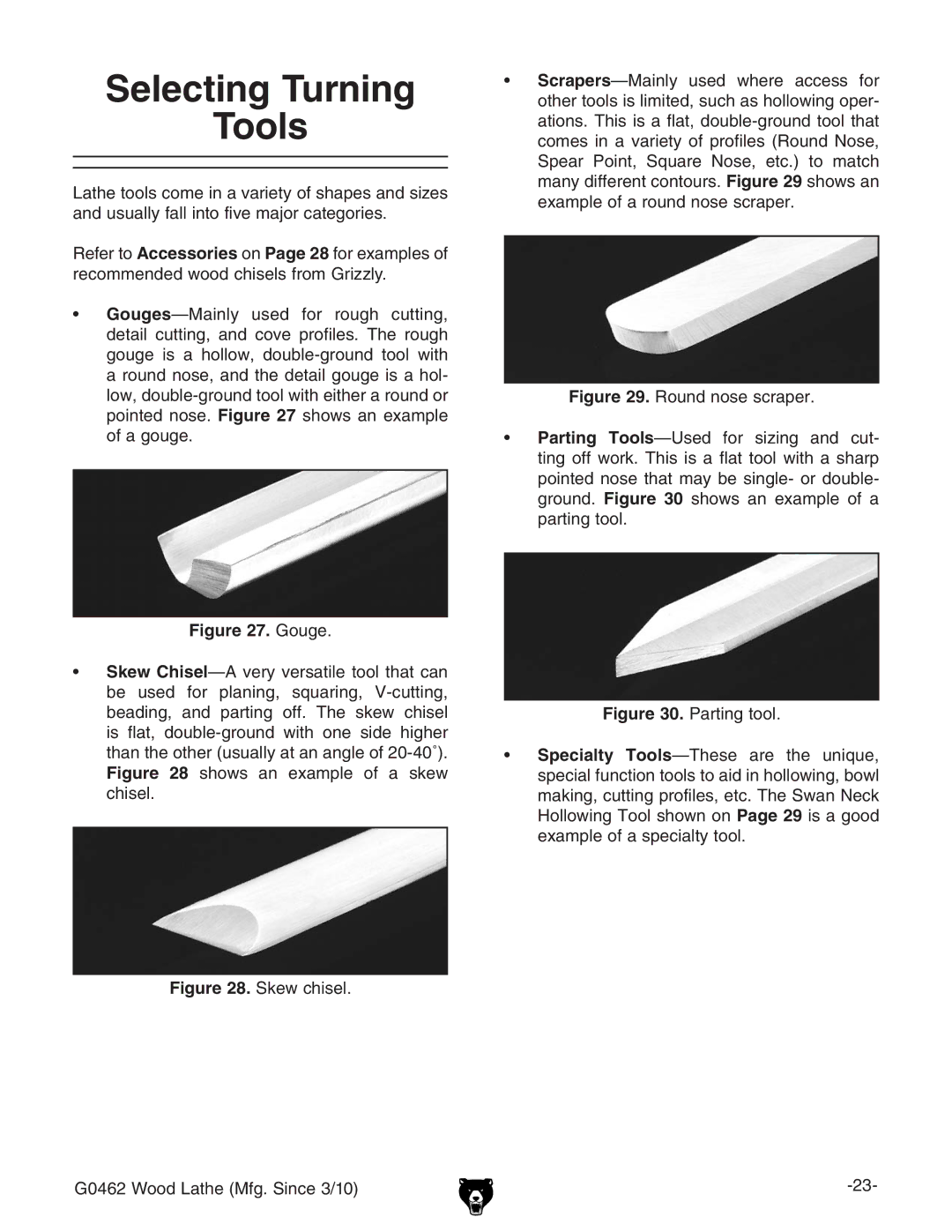
Selecting Turning
Tools
Lathe tools come in a variety of shapes and sizes and usually fall into five major categories.
Refer to Accessories on Page 28 for examples of recommended wood chisels from Grizzly.
•
•
Figure 29. Round nose scraper.
•Parting Tools—Used for sizing and cut- ting off work. This is a flat tool with a sharp pointed nose that may be single- or double- ground. Figure 30 shows an example of a parting tool.
Figure 27. Gouge. |
| |
• Skew |
| |
be used for planing, squaring, |
| |
beading, and parting off. The skew chisel | Figure 30. Parting tool. | |
is flat, |
| |
than the other (usually at an angle of | • Specialty | |
Figure 28 shows an example of a skew | special function tools to aid in hollowing, bowl | |
chisel. | making, cutting profiles, etc. The Swan Neck | |
|
| Hollowing Tool shown on Page 29 is a good |
|
| example of a specialty tool. |
|
|
|
Figure 28. Skew chisel.
G0462 Wood Lathe (Mfg. Since 3/10) |
